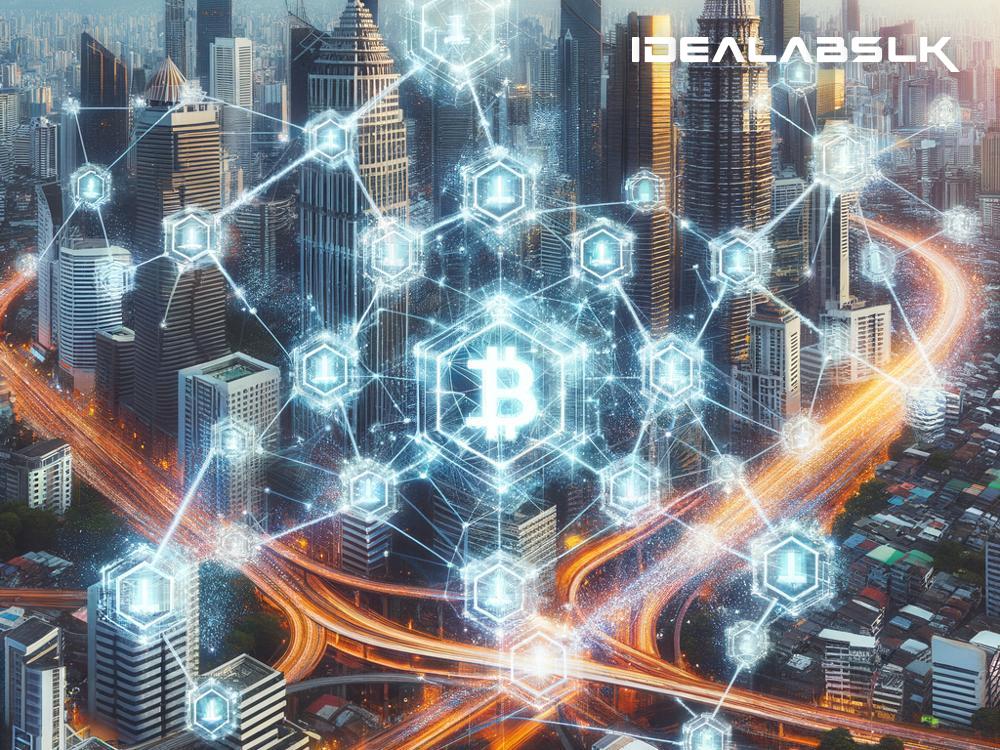Blockchain and Real Estate: The Role of NFTs in Property Transactions
The world of real estate is evolving, and the buzzword at the center of this transformation is 'blockchain'. Yes, you've probably heard about blockchain in the context of bitcoin and other cryptocurrencies. However, its impact reaches far beyond, especially into the realm of real estate. Tied closely to this is another term you might have come across lately – NFTs or Non-Fungible Tokens. But what exactly does all this mean for buying and selling properties? Let's break it down into simpler terms.
Understanding Blockchain and NFTs
Before we dive into how blockchain and NFTs are changing the property market, let’s clarify what they are. Imagine blockchain as a digital ledger that is transparent, secure, and impossible to hack. This technology allows data to be stored in blocks that are then chained together. Once a piece of information is added, it cannot be altered or deleted, making the system highly trustworthy.
NFTs, on the other hand, refer to unique digital tokens that can represent ownership of a specific item or asset. Unlike cryptocurrencies such as Bitcoin, which are interchangeable, each NFT is unique and cannot be exchanged on a one-to-one basis with another NFT.
NFTs Making Waves in Real Estate
So, how do NFTs fit into the real estate world? Essentially, they can be used to represent ownership of a property, turning physical assets into digital ones. Here's a simple example: Instead of having a paper deed to your house, you would have a digital version of that deed in the form of an NFT. Pretty futuristic, right?
The Benefits
-
Security and Transparency: With blockchain technology, all transactions and ownership records are stored securely and transparently. This minimizes the risk of fraud and makes it easy to verify property ownership without wading through piles of paperwork.
-
Speed and Efficiency: Traditional property transactions can be slow and cumbersome, often requiring weeks or even months to complete due to the legal and financial checks involved. Blockchain and NFTs can significantly speed up this process by simplifying the transfer of property titles and cutting out many intermediary steps.
-
Global Reach: NFTs essentially digitize property transactions, making it easier for buyers and sellers from different parts of the world to connect and do business. This opens up the real estate market to a global audience.
How It Works
Picture this: You want to buy a house. Instead of going through the traditional process, the property you're eyeing is represented as an NFT. Once you select the property, the transaction can be completed digitally through a blockchain platform. Upon purchase, the NFT, which proves your ownership of the property, is transferred to your digital wallet. The entire process is swift, seamless, and secure.
Challenges and Considerations
While the concept sounds revolutionary, integrating blockchain and NFTs into real estate is not without its challenges. For starters, there are legal hurdles to consider, as real estate laws vary widely from one jurisdiction to another. Additionally, the adoption of this technology requires a shift in mindset for both buyers and sellers, who may be accustomed to traditional transactions. There’s also the issue of digital literacy and access, as not everyone may be comfortable or equipped to partake in digital transactions.
The Future of Real Estate Transactions
Despite the hurdles, the potential benefits of blockchain and NFTs in real estate are significant. As technology advances and more people become comfortable with digital transactions, we could see a shift towards a more efficient, transparent, and accessible property market.
In Conclusion
The intersection of blockchain, NFTs, and real estate represents an exciting frontier. By digitizing property transactions and making them more secure and efficient, we could be on the cusp of a major transformation in how properties are bought and sold. While there are certainly challenges to overcome, the potential for positive change is undeniable. Welcome to the future of real estate!
In simple terms, the realms of blockchain and NFTs are not just about speculative investment or digital art; they're paving the way for a new era in real estate. This digital transformation could make buying your next home as easy as clicking a button. The future is here, and it's digitized.

